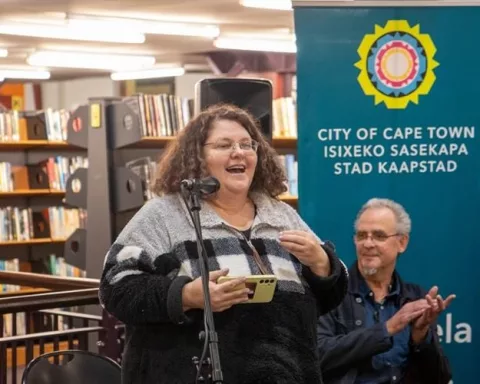The BRICS Infrastructure Investment Symposium is a platform for collaboration among Brazil, Russia, India, China, and South Africa to address the $94 trillion infrastructure financing gap and achieve the Sustainable Development Goals by 2040. The Symposium emphasizes the importance of cooperation, innovation, and sustainability to narrow the financing gap and support shared growth and development. By fostering effective partnerships, BRICS nations can accelerate the implementation of their ambitious infrastructure plans and contribute to a more prosperous, sustainable, and inclusive future.
Addressing the Infrastructure Investment Conundrum
As the global economy gradually recovers from multiple setbacks, the International Monetary Fund (IMF) cautions about a precarious period of low economic growth. In response, BRICS nations (Brazil, Russia, India, China, and South Africa) are taking deliberate, purposeful steps by focusing on infrastructure investments to boost their economies.
The Global Infrastructure Hub anticipates a demand for $94 trillion in infrastructure investments by 2040, plus an extra $3.5 trillion to achieve the Sustainable Development Goals (SDGs). Emerging markets represent nearly two-thirds of this financing deficit, and BRICS countries alone constitute over one-third of the demand. The challenge is to bridge this gap, particularly considering the constrained fiscal capabilities of many developing economies.
According to the Organisation for Economic Co-operation and Development (OECD), there is $80 trillion worth of long-term investor assets available for infrastructure development. These investments present stable, appealing, long-term returns and cashflows for investors. However, attracting private capital for infrastructure projects in emerging markets has been sluggish. The BRICS Infrastructure Investment Symposium seeks to identify necessary actions to encourage private capital infusion to support the infrastructure goals of BRICS nations.
Emphasizing Cooperation for Infrastructure Development
Enoch Godongwana, South African Finance Minister, highlights the significance of infrastructure investments for economic growth, development, access to social services, return on investment, industry competitiveness, employment opportunities, and inclusivity. He asserts that collaboration among BRICS countries, industry specialists, academics, multilateral development banks (MDBs), development finance institutions (DFIs), and other stakeholders can accelerate the implementation of their ambitious infrastructure plans.
The Symposium serves as the culmination of internal discussions and the initiation of a long-term, fruitful collaboration to secure much-needed infrastructure investments. The focus is on finding solutions to ‘how’ the financing gap can be narrowed and achieving this goal swiftly and practically. Efforts must prioritize scale, innovation, and sustainability.
To facilitate these investments, governments and officials must assess and fortify regulatory frameworks and processes, contemplate alternative strategies for expediting infrastructure development, and enhance capacity and capability. Without such essential enablers, it would be challenging to generate opportunities for shared growth and sustainable development.
Pursuing a Collaborative and Sustainable Future
Godongwana’s address at the Symposium demonstrates the dedication of BRICS nations to collaborate for a fair and just transition, bolster socio-economic development, and achieve the priorities outlined in the SDG 2030 Agenda. The African proverb, “If you want to go fast, go alone. If you want to go far, go together,” encapsulates the Symposium’s purpose.
Recognizing the opportunity costs of maintaining the status quo is crucial. BRICS nations must adopt strategic, lateral, and practical thinking in pursuing their ambitious infrastructure plans. By fostering cooperation and effective partnerships, these countries can close the financing gap and steer their economies towards a more prosperous, sustainable, and inclusive future.
As the world embarks on a new era of economic growth, the BRICS Infrastructure Investment Symposium stands as a catalyst for sustainable development. By championing infrastructure investments, BRICS nations can contribute to the global economy while ensuring the welfare of their citizens, industries, and the environment. The Symposium establishes the foundation for a collaborative journey, unleashing the potential of infrastructure investments and driving BRICS countries towards a brighter, more resilient future.
What is the BRICS Infrastructure Investment Symposium?
The BRICS Infrastructure Investment Symposium is a platform for collaboration among Brazil, Russia, India, China, and South Africa to address the $94 trillion infrastructure financing gap and achieve the Sustainable Development Goals by 2040.
What is the significance of infrastructure investments for BRICS nations?
Infrastructure investments are significant for BRICS nations as they can boost economic growth, development, access to social services, return on investment, industry competitiveness, employment opportunities, and inclusivity.
What is the financing gap for infrastructure investments by 2040?
The Global Infrastructure Hub anticipates a demand for $94 trillion in infrastructure investments by 2040, plus an extra $3.5 trillion to achieve the Sustainable Development Goals (SDGs).
What is the role of private capital in infrastructure development in emerging markets?
Attracting private capital for infrastructure projects in emerging markets has been sluggish. The BRICS Infrastructure Investment Symposium seeks to identify necessary actions to encourage private capital infusion to support the infrastructure goals of BRICS nations.
How can BRICS nations accelerate the implementation of their ambitious infrastructure plans?
Collaboration among BRICS countries, industry specialists, academics, multilateral development banks (MDBs), development finance institutions (DFIs), and other stakeholders can accelerate the implementation of their ambitious infrastructure plans.
What are the essential enablers for generating opportunities for shared growth and sustainable development?
Governments and officials must assess and fortify regulatory frameworks and processes, contemplate alternative strategies for expediting infrastructure development, and enhance capacity and capability.
What is the purpose of the Symposium?
The Symposium serves as the culmination of internal discussions and the initiation of a long-term, fruitful collaboration to secure much-needed infrastructure investments. The focus is on finding solutions to ‘how’ the financing gap can be narrowed and achieving this goal swiftly and practically.
What is the African proverb quoted in the article?
The African proverb quoted in the article is “If you want to go fast, go alone. If you want to go far, go together.” It encapsulates the Symposium’s purpose of pursuing a collaborative and sustainable future.








